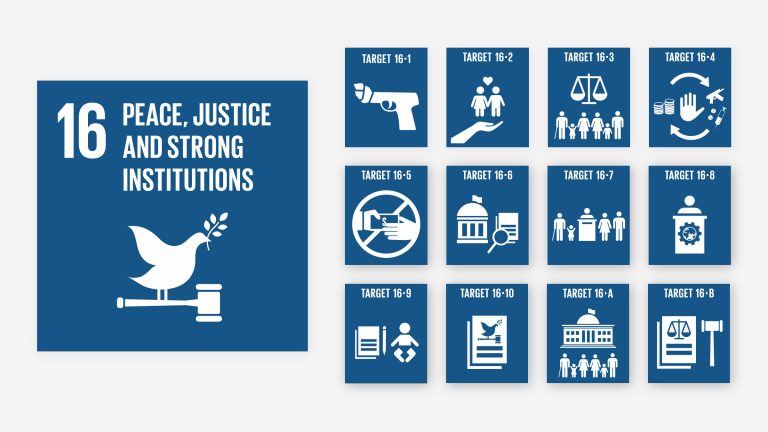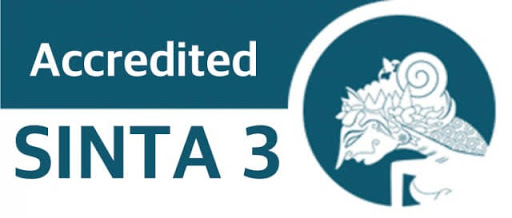The future of education related to SDG 16 (peace, justice and strong institutions): A position paper
DOI:
https://doi.org/10.12928/ijei.v3i2.6477Keywords:
future education, SDG 4, SDG 16Abstract
The spreading aspects of the seventeen sustainable development goals have been of concern to researchers in education worldwide. These goals have shed the light and grasped the attention to very crucial issues. The significance of these issues (the cores of each SDG) not only lie in their importance but also in their connectedness and mutual influence among each other. Education, being the highest peak of achievement in every society, and hence in the whole (small) world, is directly affected by each SDG. That was the reason for considering the future of Education in sight of one of the most effective sustainable goals, namely, peace, justice and strong institutions. The current paper is a position paper that discusses the float of the sixteenth sustainable goal along the future of Education. The researchers propose two statements: firstly, SDG 4 (Quality Education) and SDG 16 possess a reciprocal interaction property (i.e. they have mutual impact on each other). Secondly, this cyclic process has to start by first accomplishing SDG 16.
References
Acemoglu, D., & Robinson, J. A. (2013). Economics versus politics: Pitfalls of policy advice. Journal of Economic perspectives, 27(2), 173-92.
Amamio, M. C. (2004). The role of peace education in preventing conflict. UNISCA.
Awad, A. (2011). Governance of NGOs and comprehensive quality assurance of pre-university education institutions. Journal of Studies in Social Work and Human Sciences, 30(2), 415 – 419.
Ebrahimian, D.(2003) Conflict Prevention. Commission for Social Development. in Korten, D. C., The World According to George Soros. Tikkun Magazine. March/April 2001.
Hajdukiewicz, A., & Pera, B. (2020). Education for sustainable development—the case of massive open online courses. Sustainability, 12(20), 8542.
IAEG-SDGs. (2020). Tier Classification for Global SDG Indicators (as of 17 July 2020).
Ibrahim, K. (2014). The experiences of some developed and developing countries in the field of implementing good governance in pre-university education. The World of Education, 15(47), 17-81.
Johnson, J. (2004). Development as freedom, freedom as happiness: Human development and happiness in Bhutan. In Gross National Happiness and development. Proceedings of the frst international conference on operationalization of Gross National Happiness (pp. 457–471). Thimphu: Centre for Bhutan Studies.
Kirst, M., & Venezia, A. (2004). From high school to college: Improving opportunities for success. San Francisco: Jossey-Bass.
Klima, N., Senra, J. M. V., & De Backer, J. higher education institutions (HEIs) and SDG 16: inter-and transdisciplinary cooperation towards impact.
Kopnina, H. (2020). Education for the future? Critical evaluation of education for sustainable development goals. The Journal of Environmental Education, 51(4), 280-291.
Lawrence, A. W., Ihebuzor, N., & Lawrence, D. O. (2020). Comparative Analysis of Alignments between SDG16 and the Other Sustainable Development Goals. International Business Research, 13(10), 1-13.
Lee, S. S. (2020). Fostering “global citizens”? Trends in global awareness, agency, and competence in textbooks worldwide, 1950‒2011. Prospects, 48(3), 215-236.
Milton, S. (2021). Higher education and sustainable development goal 16 in fragile and conflict-affected contexts. Higher Education, 81(1), 89-108.
Mintzberg, H. (2015), Rebalancing Society: Radical Renewal beyond Left, Right, and Center. Berrett-Koehler Publishers, San Francisco.
Muhammad, M. (2015). Governance of pre-university education institutions as an approach to promoting the ethics of the teaching profession in the Arab Republic of Egypt. The Scientific Journal for The College of Education, 31(4), 397 – 468.
Mukhi, U., & Quental, C. (2019). Exploring the challenges and opportunities of the United Nations sustainable development goals: a dialogue between a climate scientist and management scholars. Corporate Governance: The International Journal of Business in Society.
Pashby, K. (2012). Questions for global citizenship education in the context of the ‘new imperialism’. In V. de Oliveira Andreotti and L. M. TM. de Souza (Eds.) Postcolonial Perspectives on Global Citizenship Education, (pp. 9–26). New York: Routledge.
Rieckmann, M. (2017). Education for sustainable development goals: Learning objectives. Unesco Publishing.
Sund, L. (2016). Facing global sustainability issues: teachers’ experiences of their own practices in environmental and sustainability education, Environmental Education Research, 22(6), 788–805.
The global observatory, 2019. https://theglobalobservatory.org/2019/06/integrating-goal-16-human-rights-with-all-sdgs-vital-to-2030-agenda/
UN (2016) The sustainable development agenda. https://www.un.org/sustainabledevelopment/. Accessed 1 Feb 2020.
UNESCO (2019). Global Education Monitoring Report. Migration, displacement, and education: Building Bridges, not Walls. Paris, UNESCO. https://en.unesco.org/gem-report/report/2019/migration.
Zhang, T., Shaikh, Z. A., Yumashev, A. V., & Chłąd, M. (2020). Applied model of E-learning in the framework of education for sustainable development. Sustainability, 12(16), 6420.

Downloads
Published
How to Cite
Issue
Section
License
Copyright (c) 2022 Sultan Kowkas, Shaheen Shayeb, Narmeen Bransi

This work is licensed under a Creative Commons Attribution-ShareAlike 4.0 International License.
Authors who publish with this journal agree to the following terms:
- Authors retain copyright with the work simultaneously licensed under a Creative Commons Attribution License that allows others to share the work with an acknowledgement of the work's authorship and initial publication in this journal.
- Authors are able to enter into separate, additional contractual arrangements for the non-exclusive distribution of the journal's published version of the work (e.g., post it to an institutional repository or publish it in a book), with an acknowledgement of its initial publication in this journal.
- Authors are permitted and encouraged to post their work online (e.g., in institutional repositories or on their website) prior to and during the submission process, as it can lead to productive exchanges, as well as earlier and greater citation of published work (See The Effect of Open Access).




